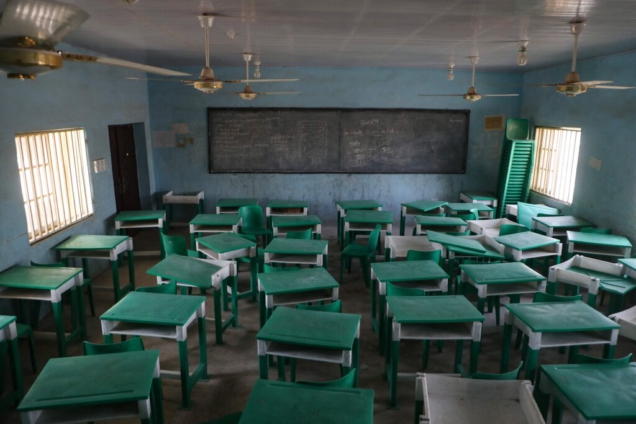When nearly 300 Nigerian schoolgirls were kidnapped from their boarding school by the Islamist group Boko Haram in 2014, the world exploded in outrage.
Hundreds marched in the country’s capital, the hashtag #BringBackOurGirls was picked up by then First Lady Michelle Obama and Nigeria’s president scrambled to respond to the mass abduction in the village of Chibok.
It seemed an aberration.
But since last December, mass kidnappings of girls and boys at boarding schools in northwest Nigeria have been happening more and more frequently — at least one every three weeks.
Just last Friday, more than 300 girls were taken from their school in Zamfara state.
They were released this week, the governor of the state announced early Tuesday.
The week before, more than 40 children and adults were abducted from a boarding school in Niger state. They were freed on Saturday.
With Nigeria’s economy in crisis, kidnapping has become a growth industry, according to interviews with security analysts and a recent report on the economics of abductions.
The victims are now not just the rich, powerful or famous, but also the poor — and increasingly, school children who are rounded up en masse.
The perpetrators are often gangs of bandits, who are taking advantage of a dearth of effective policing and the easy availability of guns.
Each kidnapping seems to inspire another.
The media coverage that erupts after every incident puts pressure on the government to win the release of the hostages.
Governors in the north have come under heavy criticism for being unable to protect their citizens.
But when hostages are liberated, the government sometimes capitalizes on the publicity.
And corrupt government officials have also been accused of skimming portions of the ransom money, according to Nigerian analysts and media reports.
“If government is not serious about it, I don’t see the end of this thing,” said Babuor Habib, an expert in education and security based in Maiduguri.
“Kidnappers have now found a very creative and easy way of getting millions of naira” — the Nigerian currency.
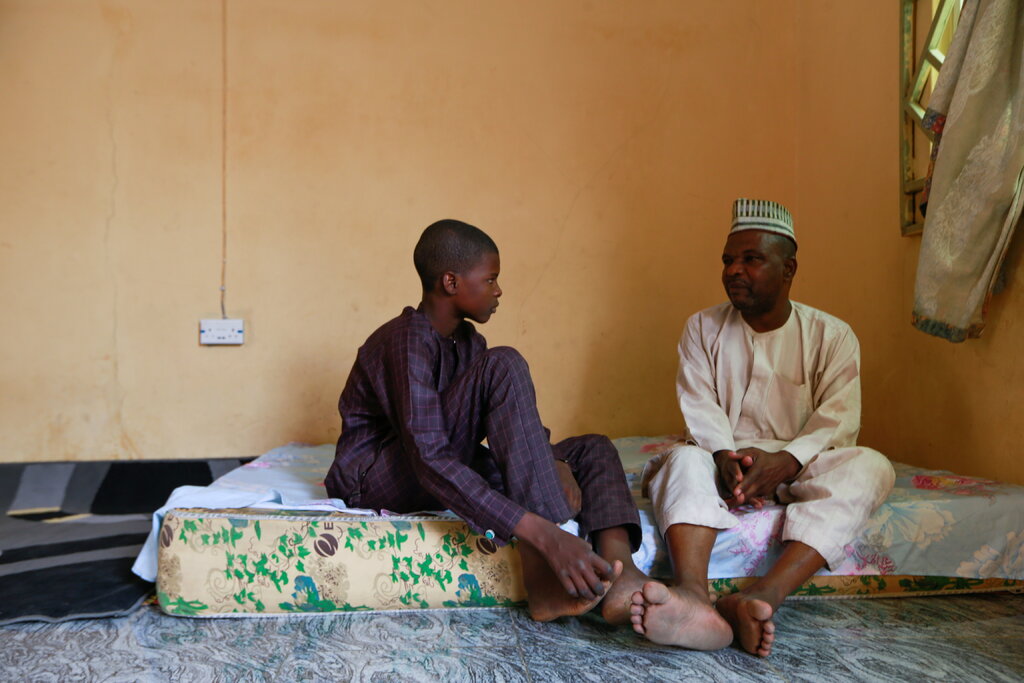
Boarding schools, which are common in Nigeria’s northwest, are often located outside of cities and towns, where there is often no security.
Late on a Friday night in December, gunshots rang out at the Government Science Secondary School in Kankara.
Boys ran from their dormitories. Some scaled the school fence and fled. But the bandits tricked others into staying by claiming to be policemen.
They made them walk all night through the countryside. Most of the children had no shoes.
“I will never forget the day of the abduction,” said Abubakar Mansur, a civil servant whose 13-year-old son, Garba, was held hostage in December. “My whole life almost came crashing down.”
Garba had spoken with his father two days before the attack.
The child was in high spirits, Mr. Mansur said, because he had just recovered from malaria.
The kidnapping was made all the more stressful by conflicting reports about what had happened to the students.
When Boko Haram’s leader said in a video message that he was behind the attack — a false claim, it turned out — Mr. Mansur almost gave up hope.
“I am an optimist, but on the issue of security in Nigeria, everything doesn’t seems right at the moment,” he said, adding that the country seems to be “deteriorating fast.”
The boys were released after six days, paraded in front of the television cameras and told by Nigeria’s president, Muhammadu Buhari, to put the incident behind them and concentrate on their studies.
Last week, Mr. Buhari blamed state and local governments on Twitter for the uptick in attacks, saying that they must improve security around schools.
He said their policy of “rewarding bandits with money and vehicles” can lead to “disastrous consequences.”
State Governments must review their policy of rewarding bandits with money and vehicles. Such a policy has the potential to backfire with disastrous consequences. States and Local Governments must also play their part by being proactive in improving security in & around schools.
— Muhammadu Buhari (@MBuhari) February 26, 2021
As abductions have become more indiscriminate, there has been a sharp rise in the number of deaths associated with them, with perpetrators viewing their victims’ lives as expendable, according to the recent report on the economics of abductions, conducted by SBM Intelligence, a Nigerian intelligence platform.
“When you have such large-scale abduction of children, especially defenseless, harmless children, the ransom value will be high because of the international pressure to rescue them,” said Confidence McHarry, a security analyst who worked on the SBM Intelligence report.
“As the abductor, everything is in your favor.”
At least $18 million was paid to kidnappers from June 2011 to March 2020, the report said.
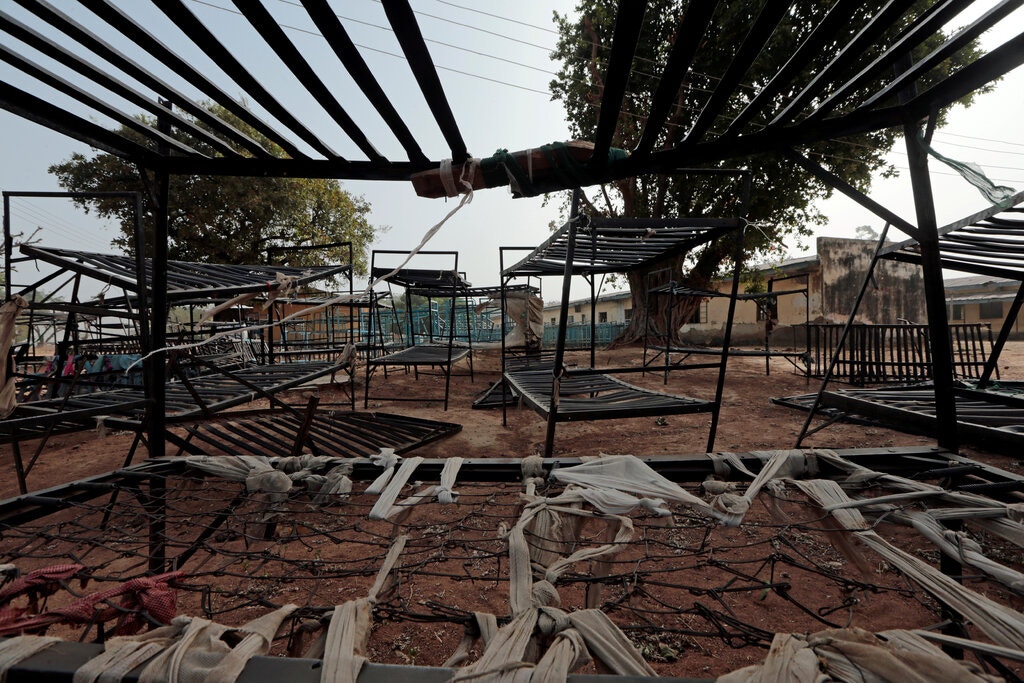
Rather than targeting people who can pay large ransoms, kidnappers in the northwest are carrying out many more attacks and demanding less ransom per victim than before — amounts like $1,000.
But it’s not just criminals who stand to benefit from the surge in kidnappings.
Corrupt government officials also profit, according to some experts.
“Kidnapping of schoolchildren for ransom is fast becoming lucrative for criminals and for officials involved in the rescue process as well,” Mr. Habib, the analyst in Maiduguri, said in an interview over WhatsApp.
“The secrecy involved in rescuing the children makes it easier for officials to pocket millions of naira supposedly paid in rescuing the children.”
Nigeria’s information minister did not respond to requests for a response on Monday.
The rich and famous in Nigeria have long had to worry about being kidnapped, or having it happen to a loved one.
It happened to Ngozi Okonjo-Iweala, the new director-general of the World Trade Organization.
Her mother was kidnapped in 2012 even as Dr. Okonjo-Iweala was trying to stamp out corruption as Nigeria’s finance minister.
The kidnappers demanded that she resign on television, but when she refused, they settled for a $60,000 ransom.
It happened to Chimamanda Ngozi Adichie, the internationally acclaimed author. Her father was kidnapped in 2015, targeted because of his famous daughter.
Her mother spoke to one of the kidnappers, calling him “sir” and “my son” in an attempt not to antagonize him.
“I understood then the hush that surrounds kidnappings in Nigeria, why families often said little even after it was over,” Ms. Adichie wrote later, after the money was paid and her father was released.
“We felt paranoid. We did not know if going public would jeopardize my father’s life, if the neighbors were complicit, if another member of the family might be kidnapped as well.”
It happened to Nigeria’s former president, Goodluck Jonathan, whose uncle was snatched in 2016 and later released.
But it was the kidnapping of the 300 schoolgirls from Chibok in 2014 that “provided inspiration for subsequent heists,” according to a recent report, also by SBM Intelligence on the security situation in Niger state, where several of the kidnappings have taken place.
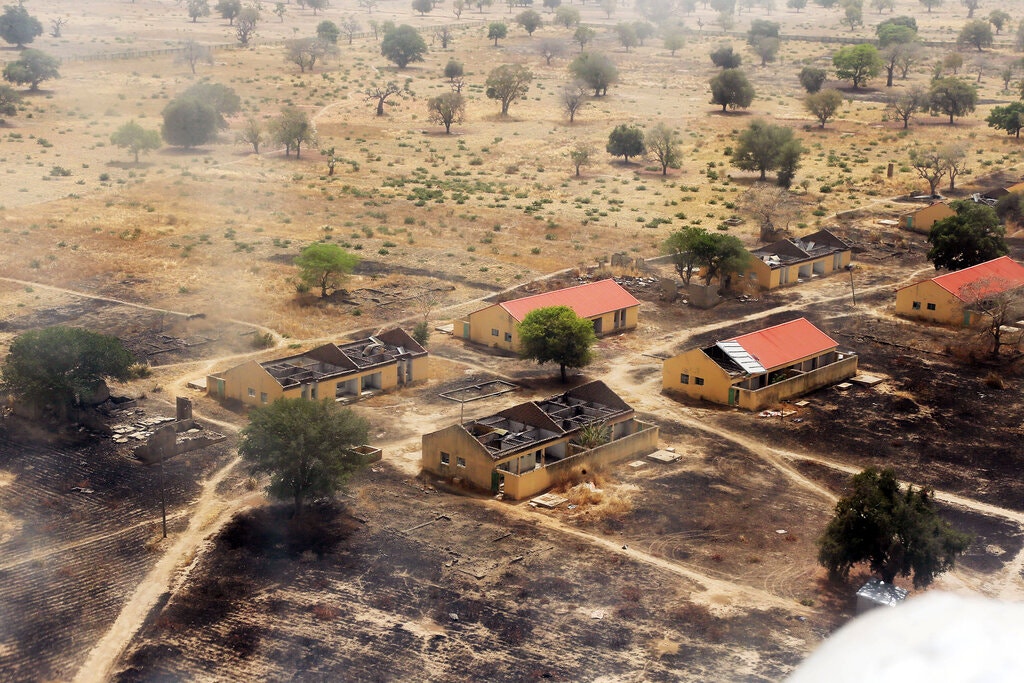
A Nigerian minister admitted that the government paid millions of euros to secure the eventual release of some of the Chibok girls, according to the authors of a new book, “Bring Back Our Girls.”
Like many governments, the Nigerian authorities often deny that they pay ransoms. But schoolchildren and bandits have contradicted their accounts.
Many Nigerians say they wish that the government would protect them from abductions in the first place, rather than paying ransoms it can ill afford or authorizing dangerous and expensive rescues.
But the police are perceived as being in the pockets of those who can pay for protection.
The military is spread so thin that the defense minister said that villagers should defend themselves from bandits. He suggested that those who did not were cowards.
“Is it the responsibility of the military alone?” Maj. Gen. Bashir Magashi, the defense minister, asked reporters a few hours after an attack on a school in Kagara on Feb. 17.
“It’s the responsibility of everybody to keep alert, and find safety, when necessary.
“But we shouldn’t be cowards,” General Magashi said. “At times, the banditry will come with about three shots of ammunition. When they fire shots, everybody runs. In our younger days, we’d stand to fight any aggression coming to us. I don’t know why people are running away from minor things like that.”
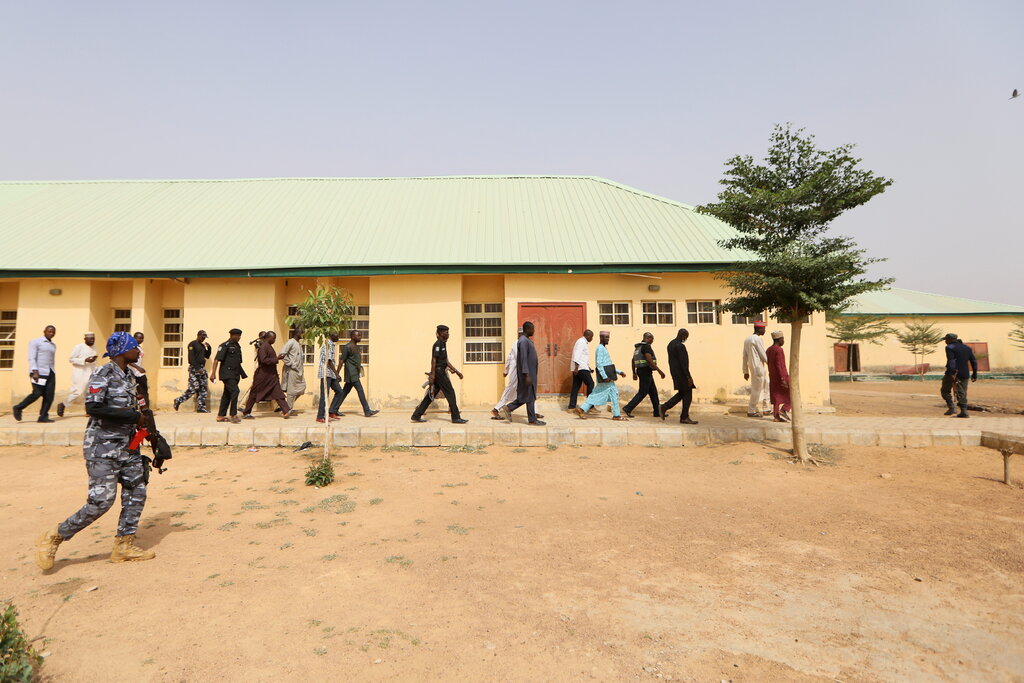
Thirty-seven percent of global abductions last year took place in sub-Saharan Africa, putting it above all other regions, according to Control Risks, a security firm.
And 99 percent of the victims were local, not foreign citizens — a much higher proportion than in any other region.
Nobody knows the number of Nigerian children currently held by kidnappers.
But most of the children taken in six recent mass school kidnappings have been released.
Chibok is the major exception. The United Nations children’s agency, UNICEF, estimates that 173 are still missing.
The educational prospects for children in Nigeria, where one-third of primary-age children already do not go to school, is at stake.
With the kidnappings happening in northern Nigeria, “for some students, that’s the end of their academic life,” said Muhammad Galma, a retired army major and security expert.
“No parent would want to endanger his or her child’s life simply because of education.”
That was exactly how Mr. Mansur felt after his son Garba was kidnapped.
“Neither Garba nor any of my family will ever go into a boarding school again,” he said.
“Not after the painful situation we were plunged into by these heartless bandits.”
Latest Stories
-
Trump signs proclamation banning travel from 12 countries including Congo, Libya, Sudan
19 minutes -
Parliament ratifies WTO agreement on fisheries subsidies
28 minutes -
GH¢1 Fuel Levy: Downstream has paid enough, show us results – Oil marketers tell government
39 minutes -
GH¢1 levy won’t fix a broken energy system – Dr Riverson Oppong
1 hour -
Musk turns on Republicans – and gives Trump’s big bill a harder path
2 hours -
Putin will seek revenge for Ukraine drone attack, warns Trump
2 hours -
Musk urges Americans to tell lawmakers to ‘kill the bill’
2 hours -
Trump signs proclamation to restrict student visas at Harvard
2 hours -
US appellate judges skeptical of Trump birthright citizenship order
3 hours -
Energy Sector Levy raised GH¢9bn but power crisis persists – AOMCs CEO
3 hours -
NIB declares 3 more suspects wanted in $350m cocaine bust
3 hours -
GCB Bank to launch special ‘Hajj Account’ as part of inclusive financial offerings
4 hours -
Trump administration plans $1,000 fee to fast-track tourist visas, memo says
4 hours -
GH¢1 fuel levy eight times worse than scrapped E-Levy – Bawumia
4 hours -
Interior Ministry warns public against fake security services recruitment
4 hours

